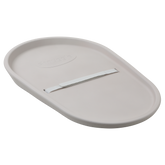Prenatal care is one of the most crucial steps you can take for a healthy pregnancy and a safe delivery. Regular check-ups, proper nutrition, and lifestyle choices all contribute to the well-being of both mom and baby. In this guide, we’ll cover the essentials of prenatal care and how you can make the most of this important time.
Why Prenatal Care Is Essential
Prenatal care helps monitor the health of both you and your baby throughout pregnancy. Regular visits allow your healthcare provider to detect any potential complications early, ensure proper fetal development, and give you the opportunity to ask questions or address concerns. Some key benefits include:- Monitoring your baby’s growth and development
- Managing common pregnancy symptoms and discomforts
- Detecting any health conditions, such as gestational diabetes or high blood pressure
- Providing guidance on proper nutrition and exercise.
What to Expect at Your Prenatal Visits
1. First Trimester (Weeks 1-12)
During your first prenatal visit, which typically happens around 8 weeks, your healthcare provider will review your medical history, conduct a physical exam, and perform several tests. These may include:- Blood Tests: To check your blood type, Rh factor, and screen for infections like HIV, hepatitis, or syphilis.
- Urine Tests: To check for signs of infection and measure protein or sugar levels, which can indicate conditions like gestational diabetes.
- Ultrasound: Early ultrasounds help confirm the pregnancy and determine the due date.
Your provider will also discuss lifestyle factors, including diet, exercise, and prenatal vitamins (especially folic acid), which are crucial for preventing neural tube defects in the baby.
2. Second Trimester (Weeks 13-26)
As you move into the second trimester, your prenatal visits will likely include:- Measuring the Baby’s Growth: Your healthcare provider will measure your belly (fundal height) to track your baby’s growth.
- Glucose Test: Around 24 to 28 weeks, you’ll undergo a glucose screening to check for gestational diabetes.
- Anatomy Scan: A detailed ultrasound around 18-20 weeks assesses your baby’s development and can reveal the gender if you wish to know.
You may also start to feel your baby move, which is an exciting milestone!
3. Third Trimester (Weeks 27-40)
In the final stretch of pregnancy, your prenatal visits will become more frequent (every two weeks and eventually every week in the last month). During these visits, your healthcare provider will:- Monitor Baby’s Position: As labor approaches, they’ll check to see if your baby is head-down.
- Check for Signs of Preterm Labor: Your provider will monitor for any early signs of labor, like cervical changes or contractions.
- Group B Strep Test: Between 35 and 37 weeks, you’ll be tested for Group B Streptococcus, a common bacteria that can affect newborns if passed during delivery.
Key Components of Prenatal Care
1. Nutrition During Pregnancy
Your diet plays a vital role in your baby’s growth and your own health. Focus on a well-balanced diet that includes:- Folic Acid: Crucial in the early weeks to prevent neural tube defects. Foods like leafy greens, beans, and fortified cereals are great sources.
- Iron: Helps support increased blood volume and prevents anemia. Include lean meats, beans, and spinach in your meals.
- Calcium and Vitamin D: For healthy bone development in your baby. Dairy products, fortified plant milk, and leafy greens are excellent sources.
- Omega-3 Fatty Acids: Important for your baby’s brain and eye development. You can find these in fish like salmon or in supplements like fish oil.
2. Exercise and Staying Active
Staying active during pregnancy can help ease common discomforts like back pain, improve your mood, and make labor easier. Safe activities include:- Walking: A simple and gentle way to keep fit.
- Prenatal Yoga: Helps improve flexibility, reduce stress, and prepare your body for labor.
- Swimming: Provides low-impact exercise, which is easy on your joints while keeping you cool.
Always consult your healthcare provider before starting any new exercise routine.
3. Managing Common Pregnancy Discomforts
As your pregnancy progresses, you might experience various discomforts. Here are a few ways to manage them:- Morning Sickness: Small, frequent meals and ginger or peppermint tea may help alleviate nausea.
- Heartburn: Eat smaller meals, avoid spicy foods, and stay upright after eating.
- Swollen Feet: Stay hydrated and elevate your feet when resting. Compression socks may also provide relief.
Warning Signs to Watch For
While most pregnancies progress smoothly, it’s important to recognize when something might be wrong. Contact your healthcare provider immediately if you experience:- Severe headaches or vision changes
- Persistent abdominal pain or cramping
- Vaginal bleeding or fluid leakage
- Reduced fetal movement
- Signs of preterm labor, such as regular contractions before 37 weeks.
Final Thoughts
Prenatal care is your guide to ensuring a healthy pregnancy, providing you with the tools and support you need for both your and your baby’s well-being. By attending regular check-ups, maintaining a balanced diet, and staying active, you’re setting the foundation for a healthy pregnancy and a smoother delivery. Always stay in close communication with your healthcare provider, and don’t hesitate to reach out with any questions or concerns.
Editor’s Picks
Shnuggle Toddler Bath Tub | Big Bath for bigger kids | Child bathtub seat support | Fits in shower and adult bath
- From $76.95
- From $76.95
- (-0%)
- Unit price
- / per
Shnuggle Baby Bath | Newborn baby bath Support with Bum Bump | Compact Bathtub for babies | Bath Seat Suitable from Birth
- From $59.95
- From $59.95
- (-0%)
- Unit price
- / per
Shnuggle Squishy Diaper Changing Mat | Wipeable | Hygienic | Safe
- $99.95
- $99.95
- (-0%)
- Unit price
- / per
Nattou Silicone Children’s Tableware Set 4-Piece with Non-Slip Suction Plate & Bowl
- $24.95
$34.95- $24.95
- (-29%)
- Unit price
- / per
Nattou Cuddly Horse Tim and Tiloo
- $9.95
$24.50- $9.95
- (-59%)
- Unit price
- / per












